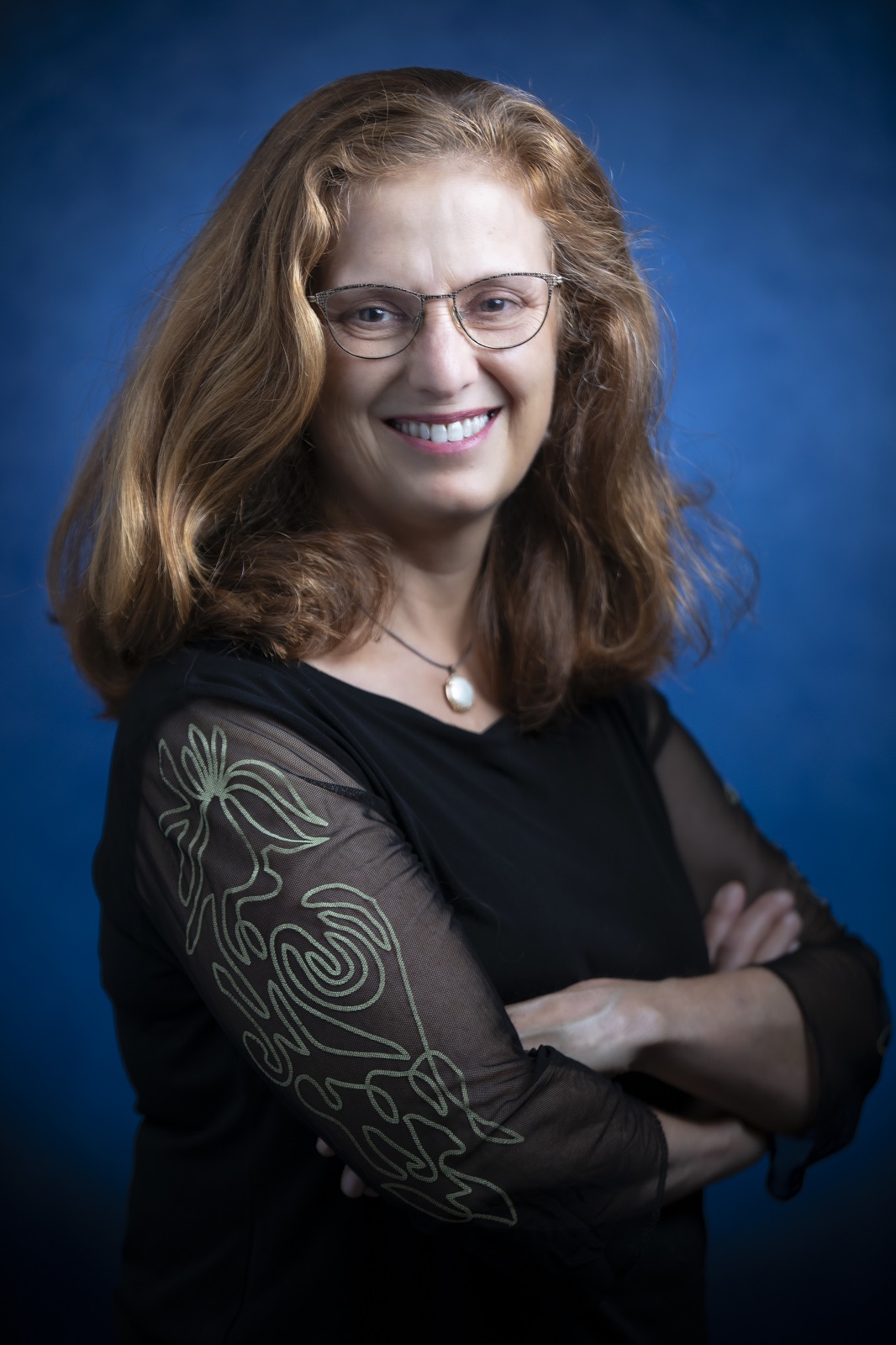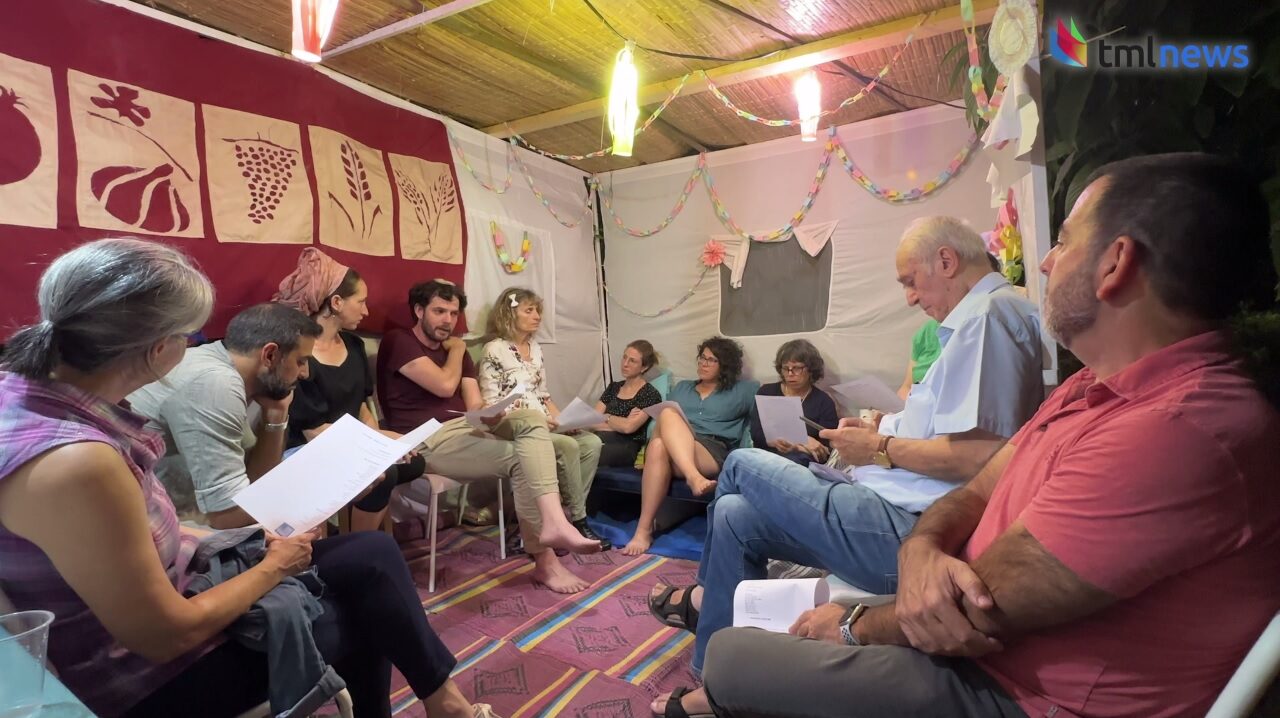Peace Under the Sukkah: Volunteers Host Open Dialogues for the Holidays
“This is our second War of Independence. It’s a war for the strength and resilience of our future in the state of Israel.”
On a quiet street in North Tel Aviv, a trickle of people began streaming into a small but comfortably furnished hut, called a sukkah in Hebrew. The group comprised young and old, socially active and passive, and left-wing and right-wing individuals, who all took their places in a circle. After introducing themselves, they began sharing their ideas, ideals, fears, and hopes for the future.
Such gatherings recently took place all over the country, representing an increasingly rare moment of understanding that no matter one’s politics, the nation must stay united.
Today, societal divisions worldwide seem worse than ever—and Israel is no exception. Tensions are mounting daily regarding the judicial overhaul proposed by Prime Minister Benjamin Netanyahu’s government.
Sixty-five percent of Israelis consider the current sociopolitical conflict around the proposed judicial reforms to be one of the most serious crises—if not the most serious crisis—in Israel’s modern history, according to the Jewish People Policy Institute’s 2023 annual assessment.
Many Israelis report friendships and families being torn apart by passionate political differences and arguments.
As such, many citizens are trying to course-correct, telling The Media Line that they’d be more than willing to sit and have an open dialogue with people on the other side of the political spectrum. Some of these very citizens were the ones taking part in the dialogue circle in the sukkah.
Thematically dubbed “The Sukkah of Our Shared Home,” this project was formed between partnerships with the anti-judicial overhaul but apolitical protest movement, “Safeguarding our Shared Home,” as well as the 929 Initiative, which promotes communal religious study, and several other groups.
As part of the program, which leverages traditions from the holiday of Sukkot to foster discussion and understanding in place of slogans and “othering,” volunteers were asked to invite as broad a group as possible and to host open discussions in their sukkahs.
This holiday season, give to:
Truth and understanding
The Media Line's intrepid correspondents are in Israel, Gaza, Lebanon, Syria and Pakistan providing first-person reporting.
They all said they cover it.
We see it.
We report with just one agenda: the truth.


A sukkah is a temporary dwelling that Jews build and occupy for the weeklong holiday of Sukkot to remind them of their ancestors’ time in the desert as told in the Exodus story. Traditionally, Jews also invite guests called ushpizin to stay with them in the sukkah. For this reason, the Safeguarding Our Shared Home movement felt that the holiday of Sukkot was a perfect symbol for its mission.
When you sit in your home, you’re in your comfort zone. In the sukkah, you’re less protected, and we invite ushpizin to be with us.
Speaking to The Media Line, Prof. Michal Muszkat-Barkan, one of the leaders of Safeguarding Our Shared Home, explained: “When you sit in your home, you’re in your comfort zone. In the sukkah, you’re less protected, and we invite ushpizin to be with us. So, this is the way we decided to do it. … To host and invite people who don’t necessarily agree with us, give them the opportunity to feel uncomfortable, and to discuss the future of Israel. We told people to think of the future of Israel, what values should be [made] permanent, and what values are in disagreement and can be temporary or negotiated for the sake of broad [societal] agreement.”

Prof. Michal Muszkat-Barkan. (Courtesy)
More than 250 volunteers from all over Israel (and even one synagogue in Seattle, Washington) participated in The Sukkah of Our Shared Home—with a total of more than 10,000 guests.
Among the event’s hosts were Maayan and Elishav Rabinovich, Orthodox religious Jews with politically liberal leanings. They invited The Media Line to their sukkah outside their home in Tel Aviv.
“I’m really excited,” Maayan told The Media Line before the first guests arrived. “I think that it’s very rare that we have a structured opportunity to listen. … An opportunity for people to get together and put the painful discussions on the table and face them. If we facilitate it correctly, people will feel it’s a safe place to share what’s really troubling them.”
The couple expressed a genuine desire to engage, which was mirrored by their guests—mostly strangers who held a mix of political affiliations and ideologies.
“I’m not naive enough to think that we’ll leave with conclusions or agreements or a solution to the conflict,” Maayan continued. “But getting together and listening to other people is a huge step. Because then it’s not ‘them.’ It’s ‘someone’ with a name and an identity, and it’s personal in a good way.”
This is our second war of independence. It’s a war for the strength and resilience of our future in the State of Israel.
Muszkat-Barkan agreed, describing the increasing polarization as affecting every facet of Israeli life, including dissolving trust in public institutions and threatening basic covenants in society.
“This is our second war of independence,” she said. “It’s a war for the strength and resilience of our future in the State of Israel.”
While participants praised the event, at the end of the evening’s discussions, a larger question remained: “Can our leaders similarly discuss and compromise so openly?”
Tel Aviv resident and sukkah guest Hadas Eyal said she “was quite open to anything … from everyone agreeing and being polite to screaming and leaving in the middle [of the event]. So it was thankfully in the middle, and it was nice. We shared opinions and our fears and hopes … if we could somehow get our politicians on board, that would be lovely.”

